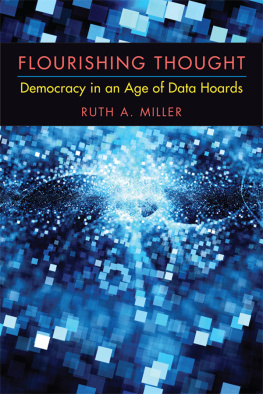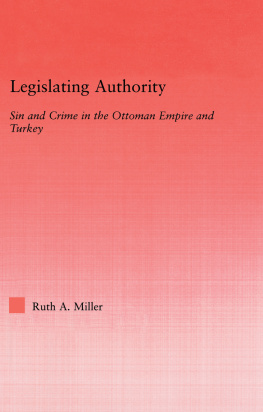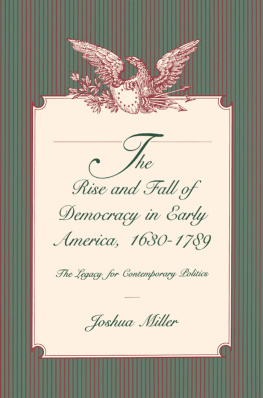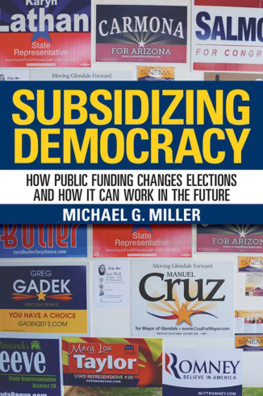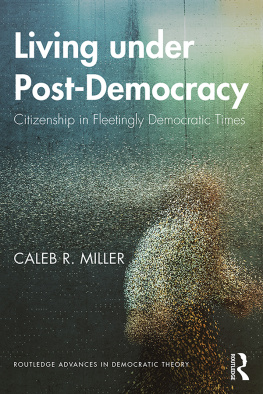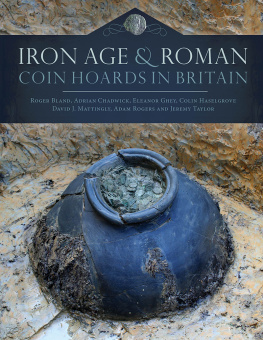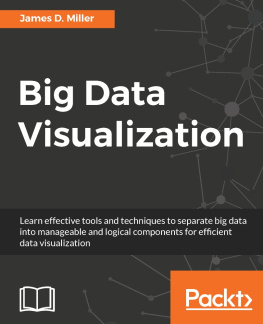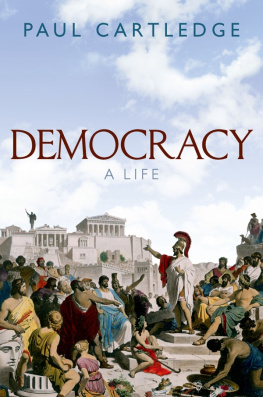Ruth A. Miller - Flourishing Thought: Democracy in an Age of Data Hoards
Here you can read online Ruth A. Miller - Flourishing Thought: Democracy in an Age of Data Hoards full text of the book (entire story) in english for free. Download pdf and epub, get meaning, cover and reviews about this ebook. year: 2018, publisher: University of Michigan Press, genre: Politics. Description of the work, (preface) as well as reviews are available. Best literature library LitArk.com created for fans of good reading and offers a wide selection of genres:
Romance novel
Science fiction
Adventure
Detective
Science
History
Home and family
Prose
Art
Politics
Computer
Non-fiction
Religion
Business
Children
Humor
Choose a favorite category and find really read worthwhile books. Enjoy immersion in the world of imagination, feel the emotions of the characters or learn something new for yourself, make an fascinating discovery.
- Book:Flourishing Thought: Democracy in an Age of Data Hoards
- Author:
- Publisher:University of Michigan Press
- Genre:
- Year:2018
- Rating:5 / 5
- Favourites:Add to favourites
- Your mark:
- 100
- 1
- 2
- 3
- 4
- 5
Flourishing Thought: Democracy in an Age of Data Hoards: summary, description and annotation
We offer to read an annotation, description, summary or preface (depends on what the author of the book "Flourishing Thought: Democracy in an Age of Data Hoards" wrote himself). If you haven't found the necessary information about the book — write in the comments, we will try to find it.
Flourishing Thought: Democracy in an Age of Data Hoards — read online for free the complete book (whole text) full work
Below is the text of the book, divided by pages. System saving the place of the last page read, allows you to conveniently read the book "Flourishing Thought: Democracy in an Age of Data Hoards" online for free, without having to search again every time where you left off. Put a bookmark, and you can go to the page where you finished reading at any time.
Font size:
Interval:
Bookmark:

At the end of the twentieth century, scholarship in the humanities and human sciences underwent what has since been called the posthuman turn. Cultural and political theorists began to argue that nonhumans were as capable of political activity as embodied human subjectsprovided that politics remained embedded in matter rather than in thought. Humans and nonhumans together could produce flourishing democracies if and only if democracy could be defined as a set of material, rather than intellectual, processes. The posthumanist canon thus developed as a canon that celebrated matter before all else. Now, challenging this assumption, Ruth Miller argues that what nonhuman systems contribute to democracy is not a new variation on materialism but a new variation on political thought.
Drawing on recent feminist theories of nonhuman life and politics, Miller begins by showing that reproduction and flourishing, on the one hand, and contemplation and sensitivity, on the other, are not antithetical. Instead, processes of life and processes of thought are indistinguishable. After identifying this interrelation in both historical and contemporary democratic politics, Miller investigates four alleged threats to democratic engagementglobal surveillance, stored embryos, human clones, and reproductive trashand finds that these menacing accumulations of matter and information are in fact not politically damaging but politically productive. As a consequence, she questions the usefulness of individual rights such as privacy and dignity, contests the value of the rational metaphysics underlying human-centered political participation, and reevaluates the gender relations that derive from this type of participation. Ultimately, in place of these human-centered structures, Miller posits a more meditative mode of democratic process.
Millers argument has huge implications for reframing some of todays major ethical, social, and security issues, from the debates over proper use and disposal of embryonic tissue to alarms about data gathering by states and corporations.
Ruth A. Miller is Professor of History at the University of Massachusetts Boston.
Page ii Page iiiRuth A. Miller
University of Michigan Press
Ann Arbor
Page iv Copyright 2016 by Ruth A. Miller
All rights reserved
This book may not be reproduced, in whole or in part, including illustrations, in any form (beyond that copying permitted by Sections 107 and 108 of the U.S. Copyright Law and except by reviewers for the public press), without written permission from the publisher.
Published in the United States of America by the
University of Michigan Press
A CIP catalog record for this book is available from the British Library.
Library of Congress Cataloging-in-Publication Data
Names: Miller, Ruth Austin, 1975 author.
Title: Flourishing thought : democracy in an age of data hoards / Ruth A. Miller.
Description: Ann Arbor : University of Michigan Press, 2016. | Includes bibliographical references and index.
Identifiers: LCCN 2016011542| ISBN 9780472130108 (hardback) | ISBN 9780472122301 (e-book)
Subjects: LCSH: DemocracyPhilosophy. | DemocracySocial aspects. | DemocracyMoral and ethical aspects. | Feminist theory. | BISAC: POLITICAL SCIENCE / History & Theory. | SOCIAL SCIENCE / Gender Studies.
Classification: LCC JC423 .M61957 2016 | DDC 321.8dc23
LC record available at https://lccn.loc.gov/2016011542
Page v For Jack, who wants to be bacteria when he grows up
Page vi Page viiYellow, translucent slime covers western Africa in a cropped photograph of a globe. This reporting is from the Guardian newspapers website, fall of 2012.
A little less than a year later, a different image appeared on the same website: a flat, two-dimensional map of the world, black backdrop, focused on the northern hemisphere, and delineated by color-coded nation-state. The headline over this image is Boundless Informant: the NSAs secret tool to track global surveillance data. Obviously, there is nothing thoughtful, beneficial, or even useful about such collection. In taking over the planet, these data flows will never help humans to find their own way in the world.
And yetis it possible that the work of the slime mold and the work of Boundless Informant might have more to do with one another than they appear to? The parallelism of the Guardians images and the rhetoric, if not the tone of its reporting on them, at least hints at some connection. Might it be worthwhile to explore the politics and the penchant for global colonization that drive each of these diffuse, flourishing, decentralized, and information-driven systems? The hypothesis driving this book is that, yes, the growth of slime mold and extension of mass surveillance systems can say quite a lot about one another. One might even speculate that, radically human-centered Guardian reporting to the side, the only responsible way to understand and to respond to programs like Boundless Informant is to take slime mold seriously, not to be amused, and to consider the political relevance of other boundless things. The only responsible way to approach Threats to Democracy, in titled capitalsthreats such as data miningis, perhaps, to keep the slime mold at the forefront of discussions of democracy and of the practices that seem to undermine democratic engagement.
To give slime, data, and other boundless things their political due, however, is also to step back from the ephemeral and impressionistic, if sometimes intense, journalistic reporting on day-to-day scientific breakthroughs, moments of tolerant humanist self-discovery, and the wildly varied menaces to liberal democracy that go along with both. There is, against the journalism, a more substantial story to be told. Lurking within the Guardians intertwined rhetoric of mold, colonialism, and surveillance, after all, is, likewise, a more solid, grounded, and enduring history of boundless, spreading things and systems that encroach onor at least become relevant tomodern modes of political belonging. That slime and data merit the same literary devices in journalistic reporting of this sort hints at a deeper and slower set of historical connections between the two. Those historical connectionsand how these connections might dampen the shrill rhetoric of democracy always under assaultare the subject of this book.
The linchpin holding together the political histories of spreading, creeping things, systems, assemblages, and accumulations that appear over the following pages is the assertion that the growth of these things is as thoughtful as it is reproductive, and as political as it is thoughtful. Each Page 3 of the case studies in the boundless stuff that forms the subject of this bookdissociated embryonic material, cloned human cells, toxic and polluting trash, and proliferating datais a case study in reproductive or replicating activity that is also political activity, and a variation on political thought. The growing, reproducing, and flourishing systems that populate the following chapters are also thinking, processing, and political systems. Like slime and data, these systems arewhether organic, inorganic, technological, environmental, or informationalsystems whose growth or reproduction is thought in exactly the same way that any growing computational system is thinking. But, once moreand also like the slime molds engulfing of the earth and the replication of Boundless Informant across nation-statesthe thought of these accumulations and assemblages is infinitely more beneficial to democracy than it is an attack on democracy.
Font size:
Interval:
Bookmark:
Similar books «Flourishing Thought: Democracy in an Age of Data Hoards»
Look at similar books to Flourishing Thought: Democracy in an Age of Data Hoards. We have selected literature similar in name and meaning in the hope of providing readers with more options to find new, interesting, not yet read works.
Discussion, reviews of the book Flourishing Thought: Democracy in an Age of Data Hoards and just readers' own opinions. Leave your comments, write what you think about the work, its meaning or the main characters. Specify what exactly you liked and what you didn't like, and why you think so.

